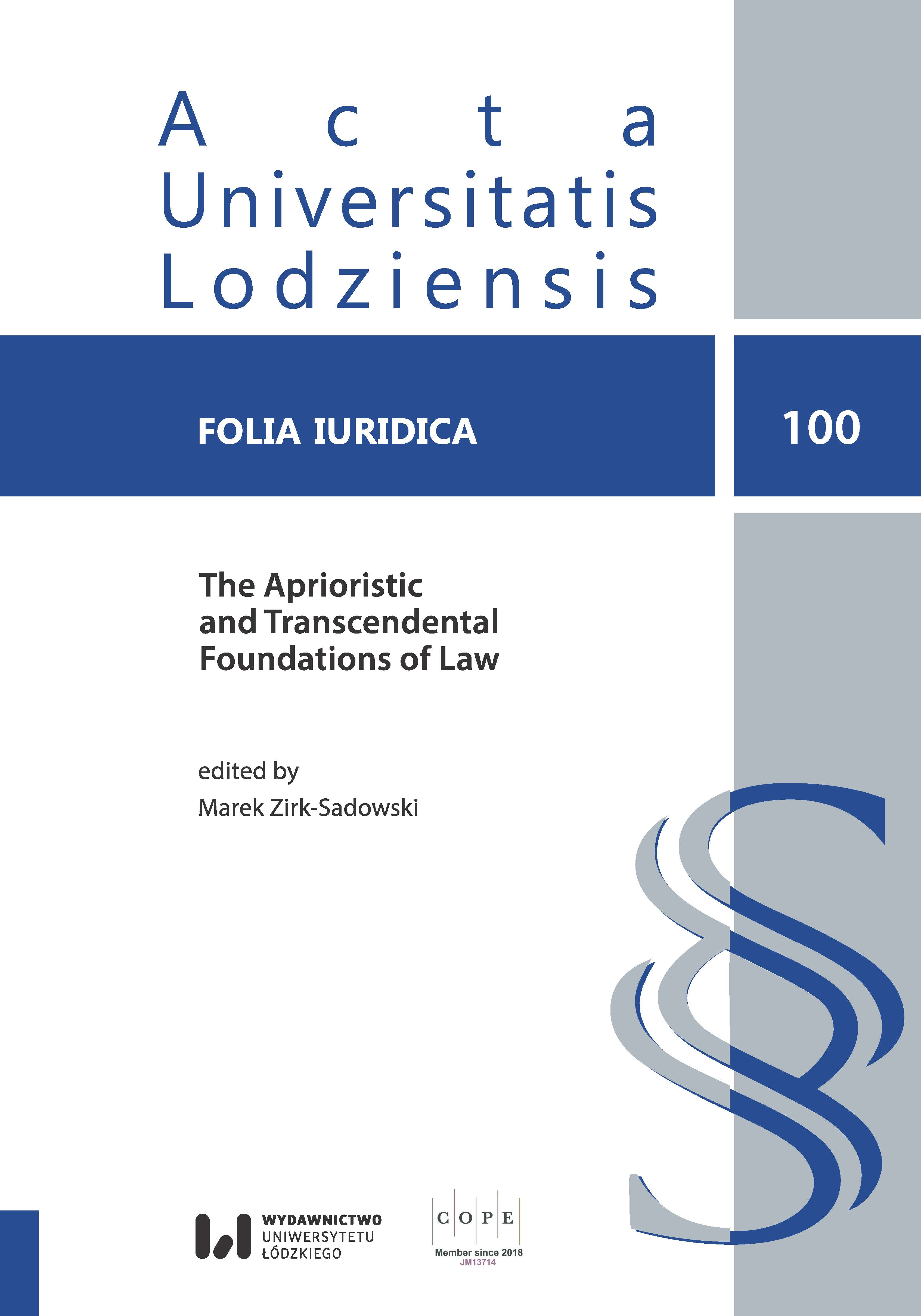Mediation as a Factor Strengthening the Communicative Aspect of Law
DOI:
https://doi.org/10.18778/0208-6069.100.05Keywords:
ontology of law, the essence of law, communication, law as communication, dialogue, mediation, legal dispute, decisionAbstract
When reviewing contemporary concepts of law, it is easy to notice that many of them emphasise the role of communication and dialogue in law. This paper is an attempt to link the philosophical aspect with legal practice, picturing both the basic ontological concepts based on the communicative aspect and the mediation as a form of dialogue in law application process. The aim is to draw attention to the correspondence between the mediation and deliberative democracy in the multi-centric legal reality. The conclusion indicates that the professionalisation of the profession of mediator shall help in such a process.
Downloads
References
Alexy, Robert. 1978. Theorie der juristischen Argumentation. Die Theorie das rationalen Diskurses als Theorie derristischen Begründung. Frankfurt am Main: Suhrkamp Verlag.
Google Scholar
Dworkin, Ronald. 1986. Law’s Empire. London: Fontana Press.
Google Scholar
Haarscher, Guy. 2005. “Some Contemporary Trends in Continental Philosophy of Law.” In The Blackwell Guide to the Philosophy of Law and Legal Theory. Edited by Martin P. Golding, William A. Edmundson. 300–312. Oxford: Blackwell. https://doi.org/10.1111/b.9780631228325.2004.00023.x
Google Scholar
DOI: https://doi.org/10.1111/b.9780631228325.2004.00023.x
Habermas, Jürgen. 1967. Theorie und Praxis. Neuwied Am Rhein–Berlin: Luchterhand.
Google Scholar
Habermas, Jürgen. 1979. Communication and Evolution of Society. Boston: Beacon Press.
Google Scholar
Helleringer, Genevive. Kai Purnhagen. 2014. Towards European Legal Culture. Baden Baden–München–Oxford: Beck Hart Nomos. https://doi.org/10.5771/9783845263632
Google Scholar
DOI: https://doi.org/10.5771/9783845263632
Hoecke, Mark van. 2002. Law as Communication. Oxford–Portland (OR): Bloomsbury.
Google Scholar
Kaufmann, Arthur. 1985. Problemgeschichte der Rechtsphilosophie. Heidelberg: Winters.
Google Scholar
Kaufmann, Arthur. 1986. “Über die Wissenschaftlichkeit der Rechtswissenschaft.” Archiv für Rechts-und Sozialpilosophie 72(4): 425–442.
Google Scholar
Leśniewski, Norbert. 2000. „Mapa filozofii hermeneutycznej”. In O filozofii dzisiaj. Edited by Roman Kozłowski. 133–144. Poznań: Wydawnictwo UAM.
Google Scholar
Luhmann, Niklas. 1983. Rechtssoziologie. Opladen: Westdeutscher Verlag. https://doi.org/10.1007/978-3-322-95699-6
Google Scholar
DOI: https://doi.org/10.1007/978-3-322-95699-6
Luhmann, Niklas. 1987. “The Unity of Legal System.” In Autopoietic Law Autopoietic Law. A New Approach to Law and Society. Edited by Gunther Teubner. 12–35. Berlin: De Gruyter. https://doi.org/10.1515/9783110876451.12
Google Scholar
DOI: https://doi.org/10.1515/9783110876451.12
Oniszczuk, Jerzy. 2004. Koncepcje prawa. Warszawa: WSPiZ Koźmińskiego.
Google Scholar
Perelman, Chaim. 1979. The New Rhetorics and the Humanities. Esseys on Rhetorics and its Applications. London–Boston: Springer.
Google Scholar
Wronkowska, Sławomira. Zygmunt Ziembiński. 1997. Zarys teorii prawa. Poznań: Ars boni et aequi.
Google Scholar
Published
How to Cite
Issue
Section
License

This work is licensed under a Creative Commons Attribution-NonCommercial-NoDerivatives 4.0 International License.
Funding data
-
Narodowym Centrum Nauki
Grant numbers 2017/27/L/HS5/03245














